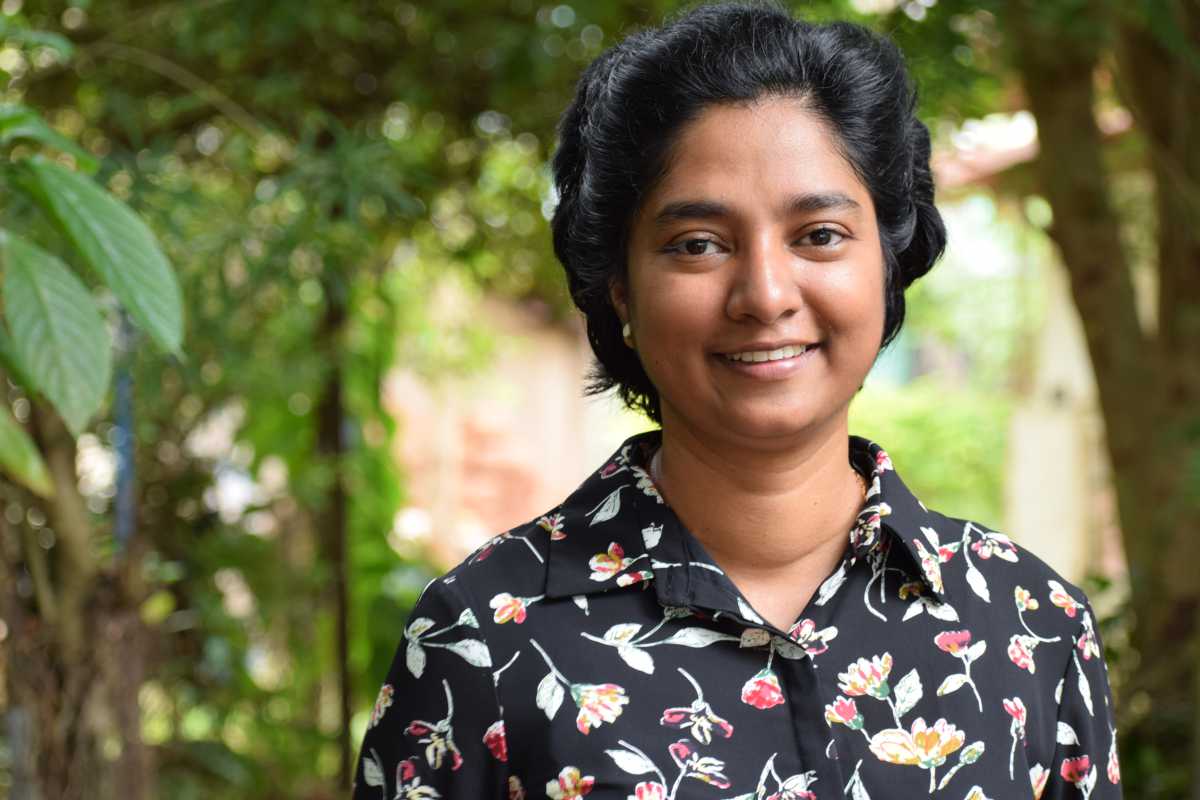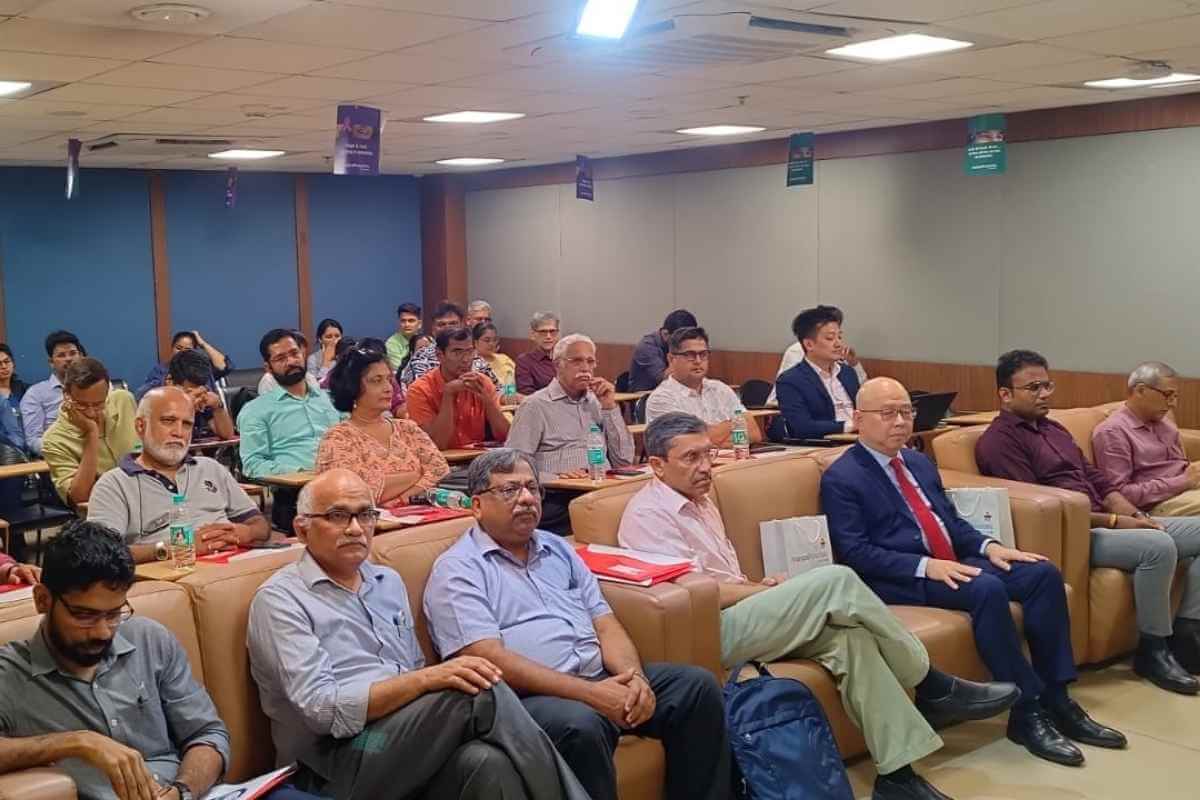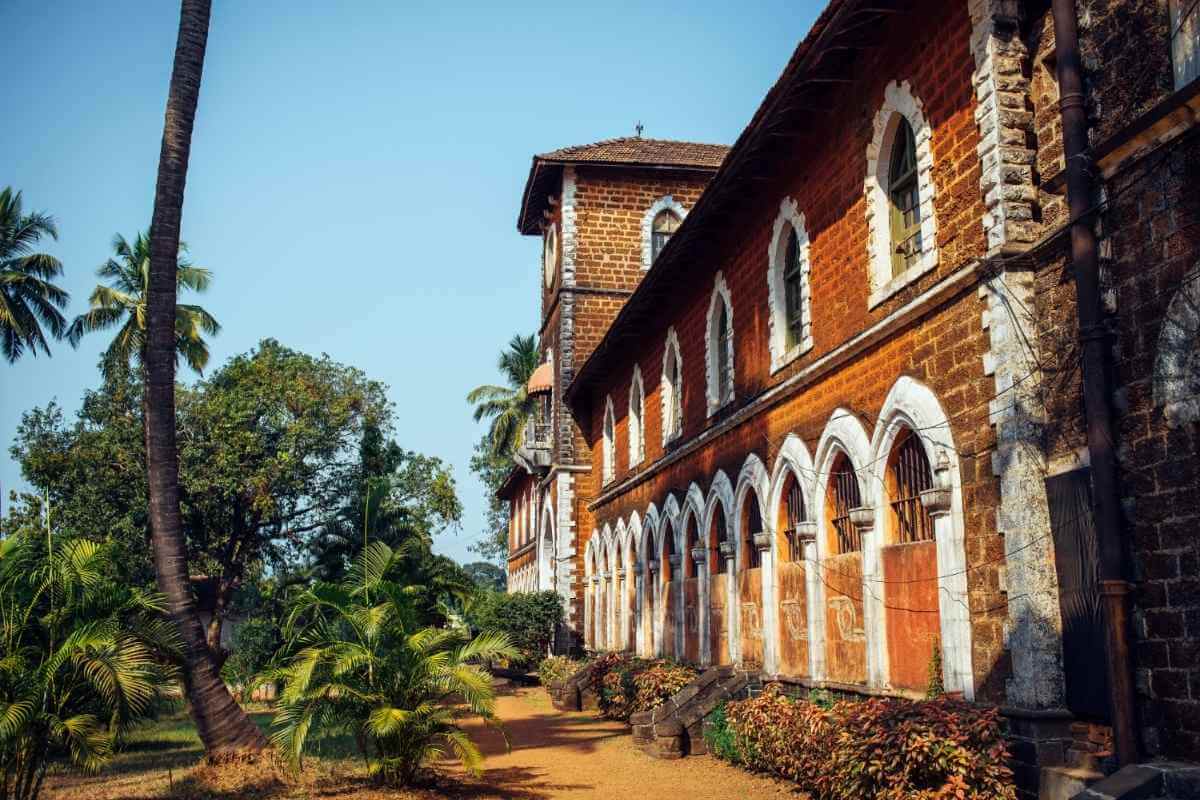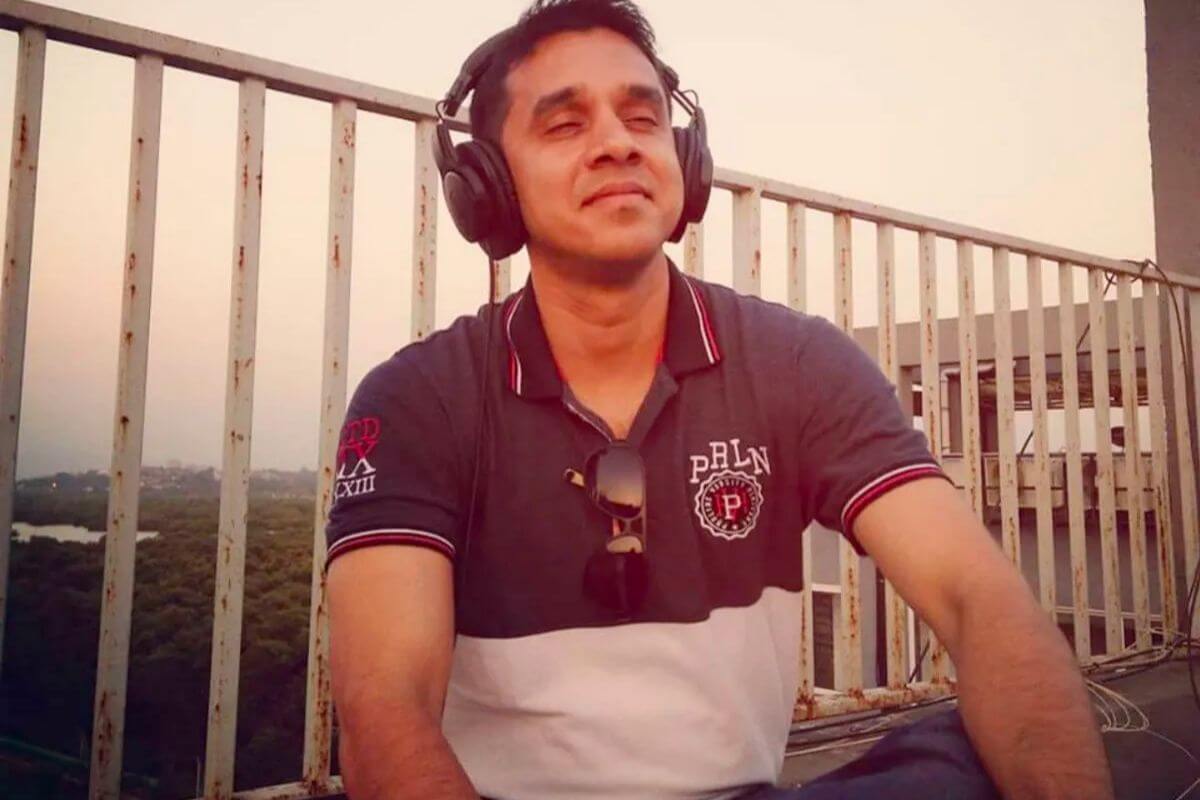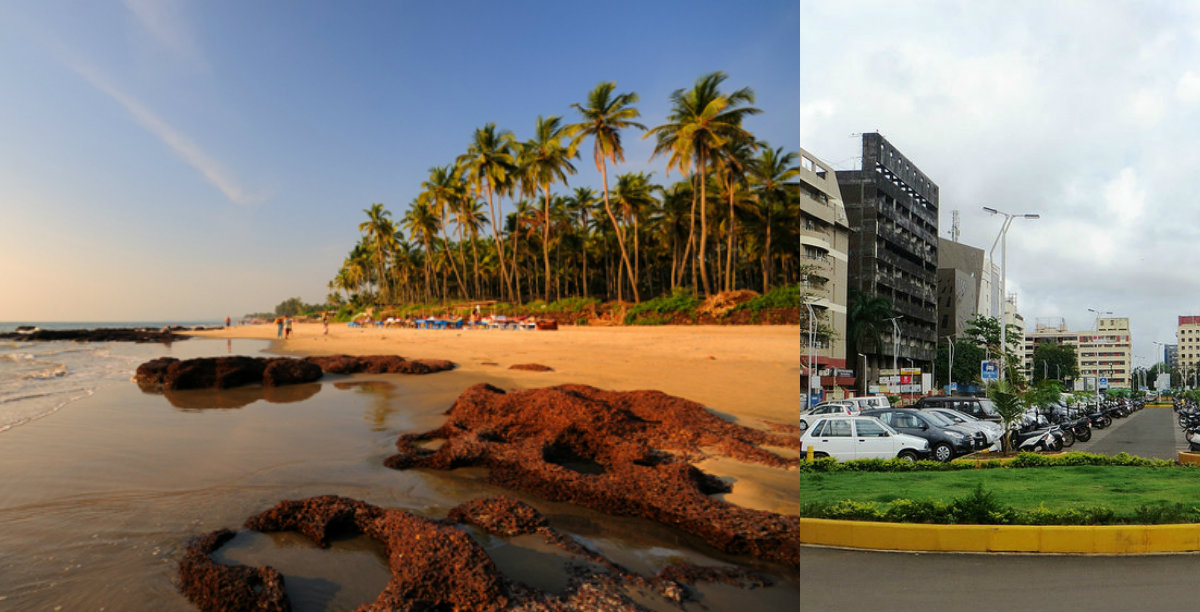From caves to paper, men have tried drawing and painting on all possible blank spaces found in the world. Did you ever come across a city or a corner in the world that does not have a painting, graphics or graffiti? Absolutely not! We may have done away with the old practices but drawing is an art form which sometimes even words fail to explain. It is the message and devotion of the painters through their eyes. Painting and drawing is an ancient form of communication used by men since the beginning of civilization. From the primitive-ancient to medieval and modern ages, drawing has taken different forms and branched out with different names. With the help of technology in the modern ages, drawing and painting have been made easier to do as well as learn with just the click of a button. In this context of art and history, I would like to introduce to my readers one such artist, who loves to sketch the history and the present state of Goa on canvas.
Born in the sandy village of Shirdona/Siridao, as a young girl Loretti Pinto started drawing for projects and she was quite good at it. As she says, she never really thought of pursuing painting as her career. She has drawn and painted on millions of blank canvases throughout her life depicting contemporary and environment threatening scenes in the most subtle ways. Coming from a village rich in art and culture, Loretti showed interest in drawing and painting that made her a fine artist of Goa that she is today. However, before joining the Arts College in Altinho, she was doubtful of whether to join the college or continue her education in science for she loved Biology and Botany. But after much persuasion from her sister and friends, she decided to give it a go in the Fine Arts College to pursue her talent. She said, “I used to draw for friends and help them in their science projects. Whenever they had any drawings to do they knew where to come. I was unsure of the art colleges in Goa so I asked my friend if she knew any. I wasn’t aware of an art college here until my friend told me that I should join there”. To make her passion her job, just before her higher secondary board exams, Loretti got herself enrolled for the exam that would take place in the arts college. Unsure of the procedure for the test, she carried with her some drawings and went to answer the exam. On reaching the examination hall, she learnt that the students were expected to know the basic technicalities about art which was very new to Loretti, nevertheless, she gave her examination. The chances of getting into the art college were comparatively low which was why she got back and joined her first year of college keeping her hopes low on getting selected in the arts college. Little did she know her art and drawing would be liked so much by the examiners! She got selected into the Fine Arts College where she pursued her Bachelors in Fine Arts and later headed to Baroda for a Masters in graphics. We can safely say that she is one of the most versatile painters found in Goa.
 After her education in Arts, she participated in various exhibitions and festivals in and out of Goa. She has presented her paintings for prestigious Art festivals like ‘Serendipity’ in 2017, based on Konkani Surrealism curated by Vivek Menezes, and in ‘Introspection’ – an exhibition curated by Neeta Omprakash, in Dakshinachitra Museum of Arts Chennai 2018. Through her paintings, Loretti brings out issues which bother her about Goa and the environment, like the diminishing heritage of Goa and the depleting forests and ecosystem. While her personal favourite tool for drawing is charcoal, she mastered etching and screen printing in college. Now, what is etching? Etching is a process done on a zinc plate on which a coat of beeswax and bitumen is rubbed. It is then covered with a black film and drawn on the plate. The areas engraved with a needle will be exposed which is later immersed in acid. With the help of the etching press, it is then printed on the cloth/paper. The longer you immerse in the acid, the darker the engravings will appear. A distinct feature of etching is that they are limited editions made only by the artists.
After her education in Arts, she participated in various exhibitions and festivals in and out of Goa. She has presented her paintings for prestigious Art festivals like ‘Serendipity’ in 2017, based on Konkani Surrealism curated by Vivek Menezes, and in ‘Introspection’ – an exhibition curated by Neeta Omprakash, in Dakshinachitra Museum of Arts Chennai 2018. Through her paintings, Loretti brings out issues which bother her about Goa and the environment, like the diminishing heritage of Goa and the depleting forests and ecosystem. While her personal favourite tool for drawing is charcoal, she mastered etching and screen printing in college. Now, what is etching? Etching is a process done on a zinc plate on which a coat of beeswax and bitumen is rubbed. It is then covered with a black film and drawn on the plate. The areas engraved with a needle will be exposed which is later immersed in acid. With the help of the etching press, it is then printed on the cloth/paper. The longer you immerse in the acid, the darker the engravings will appear. A distinct feature of etching is that they are limited editions made only by the artists.
Talking about her roots responsible for her skills, she said, “Shirdona is an artsy village. People here practice the art of making boat models or trading barges out of bamboo quite unintentionally. They don’t do that thinking it as an art, they just do it because they have to do it. In the olden days, people didn’t consider this as something important to learn; it is now that people go to institutions to learn the skill that otherwise runs in the family. “My uncle Francisco Pinto is a very well known decorator in our village. He has fine skills of carving and sculpting. I worked with him whenever he took up projects – he would do the sculpting and I would do the painting”. Besides carving, she claims that her father is also a fine poet and songwriter who pens down songs for the traditional Konkani tiatrs. Loretti believes that despite being in a technology-ridden world, one can survive in the world with the talent of drawing and painting, adding “Even to work with technology you need humans! To make logos you have to be an artist. Also, there are ‘concept artists’ picked up for animation”. Her words make one realize that art is intrinsic to our daily life and so is an artist! Apart from exhibitions, Loretti has been a lecturer in the Goa College of Art, in Kala Academy as a visiting faculty, KV school, and many others. She also volunteers for workshops. She recently worked with Nalini D’souza who runs Communicare Trust to teach illustrations to the children, and also sculpting where she was helped by her uncle. She taught the children to illustrate and draw their own illustration for their stories.
If you chance upon Loretti’s taste of paintings, you will see that her paintings are mostly based on Goan-Portuguese heritage and its beauty. She says, “I admire what the Portuguese have left for the people in their magnificent architecture and culture. My paintings are a tribute to the Portuguese reign and the communidade system. Also, the farming community is the most important in our state. I try and capture every little detail of these on my canvas”. She enjoys drawing the anatomy art of the farmers, trying to overlay a message in each of her paintings.
An artist is a visionary. They can focus their mind to grasp one important aspect and magnify it for the eyes that will see, or exhibit all of their observations onto a canvas in a style that marks their artistry. It is because of these artists that we can revisit the wonders of the Portuguese rule, and notice the uniqueness of simple things that we would otherwise fail to see due to their abundance or a common occurrence. Here is hoping that Loretti paves the way for more such artists who can be representatives of the state!

